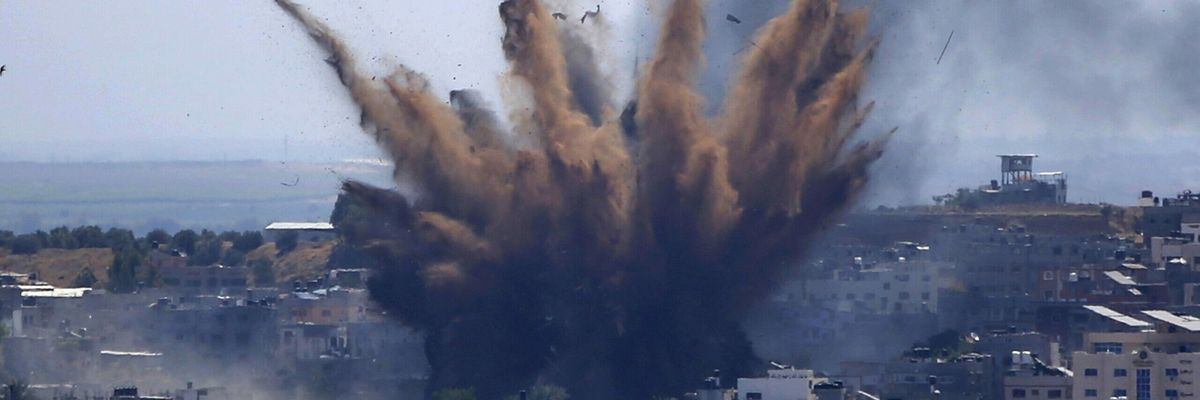More than two-thirds of Americans support a ceasefire in Israel’s war on Gaza, according to a Reuters/Ipsos poll whose results were released on Wednesday.
The poll, which gathered responses from just over 1,000 respondents earlier this week, also shows that U.S. support for Israel has declined in the month since Hamas’s incursion into Israel on October 7. The percentage of respondents who said that "the U.S. should support Israel" when asked what role Washington should play in the war dropped from 41% in mid-October to 32% percent this week.
Meanwhile, respondents who said that the U.S. should support Palestine increased from 2% to 4%, those who said it should play no role decreased from 21% to 15%, and those who urged Washington to be a “neutral mediator” jumped from 27% to 39%.
The ceasefire question was not included in the poll taken in the immediate aftermath of Hamas’s attacks, but it has become a hot-button political issue amid Israel’s ongoing, brutal retaliatory war. As of Monday, an estimated 11,000 people have been killed in Gaza since October 7. According to Gaza’s Ministry of Health, 40% of those have been children.
“The Gaza crisis has sparked an international outcry that has focused in recent days on the collapsing medical infrastructure in the crowded coastal enclave,” reads the Reuters report that announced the polling results. “Palestinians trapped inside Gaza's biggest hospital were digging a mass grave on Tuesday to bury patients who died under Israeli encirclement.”
The 68% of respondents who agreed with the statement, “Israel should call a ceasefire and try to negotiate," were divided by political party, with approximately 75% of Democrats and about half of Republicans concurring.
The overwhelming support from Democratic respondents puts them squarely at odds with the party’s political leadership in Washington. President Joe Biden said last week that there was “no possibility” of a ceasefire in Gaza, and only 27 congressional Democrats (about 10% of the conference) have publicly supported one. The split between the public and elected officials is also notable in the GOP, where no elected officials on Capitol Hill have called for a ceasefire.
“Support for Israel's war in Gaza is fast eroding among Americans,” wrote Trita Parsi, executive vice President of the Quincy Institute, on the social media platform X. “Biden & Congress are once again out of step with the American public.”
The poll also showed that 31% of respondents support sending weapons to Israel, compared to 43% who were opposed, in what Reuters called “a potentially worrisome sign for Israel.” Providing military support to Israel has long had strong bipartisan support in Washington, and Biden has recently called for an additional $14.3 billion in aid for Tel Aviv, as part of a larger supplemental package that has yet to make its way through Congress.
- Aid for Israel and Ukraine is not an American jobs program ›
- Biden refuses to talk 'ceasefire' though it could prevent a regional war ›
- Leading political scientists call for ceasefire in Gaza - Responsible Statecraft ›
- It’s 2024. Is America still indispensable? | Responsible Statecraft ›
- Neocon Iraq war architects want a redo in Gaza | Responsible Statecraft ›
- Why US ceasefire proposal failed at UNSC | Responsible Statecraft ›
- Biden & Trump take credit for Gaza ceasefire | Responsible Statecraft ›
- The Gaza ceasefire likely won't last | Responsible Statecraft ›
















